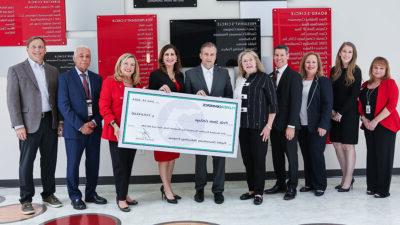LEARN – 3D Printing Program Courses
Additive Manufacturing / 3D Printing Courses
The following series of three courses will be offered through the Engineering Technology Program:
Introduction to Additive Manufacturing, 1
Review of additive-manufacturing principles and applications across industries, including automotive, aerospace, medical devices, and electronics, emphasizing characteristics and performance of common materials (polymers, metals, ceramics, and composites) used for different applications. Students are introduced to the design process for additive manufacturing and become familiar with the advantages and limitations of each additive manufacturing technology in terms of precision, resolution, material capabilities, speed of production and related cost. Laboratory assignments include product design using computer-aided design and additive manufacturing by three-dimensional printing.
Introduction to Additive Manufacturing, 2
Analysis of the unique operating and performance characteristics of additive manufacturing production compared with conventional manufacturing methods. Hands-on, project-based learning focuses on product design, workflow, productivity, costs, computational design, rapid prototyping, file format, toolpath generation, scanning, and microstructure characterization using computer-aided design and fabrication by three-dimensional printing.
Introduction to Additive Manufacturing, 3
Review of conventional and emerging methods of additive manufacturing to fabricate metallic, electronic, and biological components and devices. Laboratories and lectures focus on analyzing the role of manufacturing-process variables on the microstructures and physical properties of materials that are fabricated by additive manufacturing compared with parts produced by conventional methods.
- Key Features of the Courses:
- Each course is a hybrid of facilitated in-person instruction and self-paced online learning.
- Each course is one credit-hour and is offered as Open Entry Early Exit, which means a student can enroll at any time, without waiting until the start of the next semester.
- Contact hours / days for hand-on and lab activities are customizable to meet student schedules.
- Laboratory exercises involve use of solid modeling design, 3D printing, and 3D scanning.
- Prerequisite knowledge of 3D modeling software is not needed to begin the first course.



